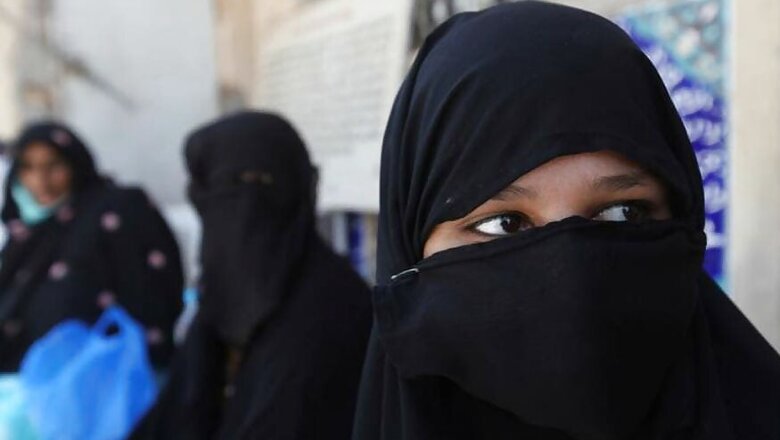
views
New Delhi: The recent observation by the Allahabad High Court which termed triple talaq as “unconstitutional” and against the fundamental rights of Muslim women has reignited the debate around the controversial practice.
The government and women rights activists want the practice to go, but the All-India Muslim Personal Law Board says it is a religious issue which the executive should not interfere with.
Speaking to News18, two women from different walks of life shared their encounter with triple talaq.
Shahnaz Hasan*, Human Rights Activist
Recently, I was divorced by my husband through the unilateral, oral, instant and completely un-Islamic triple talaq as practised in India.
My husband was not in the same country as I was, we were living apart. One fine day, he decided to call off our marriage over the phone. It hit me like a bolt from the blue — and all my attempts at reconciliation were of no use. I wasn’t even given a chance to meet him once before this decision was taken. I was told by some that since he has already decided to end our marriage and that we are no longer husband and wife, it would be un-Islamic for me to stay with him.
I wanted to take some time to think this through as I did not want to go ahead with the divorce. But I was told that it doesn't matter whether I sign the talaqnama or not; my husband could just say the word thrice and the divorce would be considered valid. I told my cousin that I am not going to give the divorce as per his convenience, let him do whatever he wants but I will not agree to it. To this, she replied that it didn’t matter what I thought because once he utters the word three times, the divorce will be valid. It was at that moment it struck me that as a Muslim woman in India, I had no real rights and no control over my marriage. I was very much in disbelief and asked my cousin to verify. I was sure it couldn’t be so easy to break the sanctity of marriage in a split second.
What about my rights as an equal partner in marriage? To me, triple talaq happened only in movies and there was no place for such a regressive practice in a secular country like India. I later found out to my shock that my cousin was right. Even though triple talaq is banned in majority of Muslim countries, it is still valid and practised in India.
In my case, there was no three-month waiting period observed, as sanctioned by our religion; there were no real attempts at reconciliation made by his family. The Quran says that a husband can say talaq once every month for the mandatory three-month period called iddah.
That left me with no option but to sign the papers. I am telling my story because I still consider myself fortunate enough to have a good job and the support of my family through this ordeal but not all women are so fortunate. My own experience made me think that if despite being so educated and independent, I could feel so helpless and lost, what happens to a woman who is not as educated and economically sound and falls victim to this medieval practice? Even though I work in an international organisation whose mandate is to safeguard human rights and gender equality, I realised that I have no real rights in my own country. I have to live with the fact for the rest of my life that my marriage ended over a text message. Triple talaq is not an issue only in the backward, uneducated part of the Muslim society, it is a problem seeped in every strata.
Najma Bano*, Jaipur shows artisan
I belong to a very poor family. My mother worked at homes washing utensils and clothes. I was married to Abdul, who worked in a stones shop as a karigar (artisan). On certain days, when my mother would be unwell, I would accompany her. At that time, she was working in a new place where some boys had come to stay in Jaipur from Makrana. They belonged to a rich family involved in marble business. One of the boys raped me, shot my pictures and showed them to my husband.
After that, in a fit of anger, my husband divorced me. I pleaded my case but in one go, I was divorced. My ordeal didn’t end there. I was married to the man who raped me. He stayed with me for 20 days, living off the money given by my family. One fine day, he left to buy cigarettes but never returned.
After that my family went to the police station to file a complaint of rape against him but we were shown the talaqnama. The local police officer told me that I was divorced again and there is no rape in marriage. This time I wasn’t even told that I was divorced, I got to know this from the cops. I was now divorced for the second time. Muslim women organisations are fighting my case, we will get justice. I am now working as a karigar for a Jaipur shoes manufacturer. Things are very tough as because of my case my sisters are not getting married."
*Names changed to protect identity




















Comments
0 comment